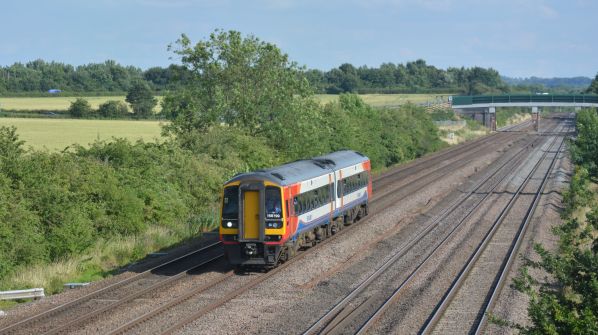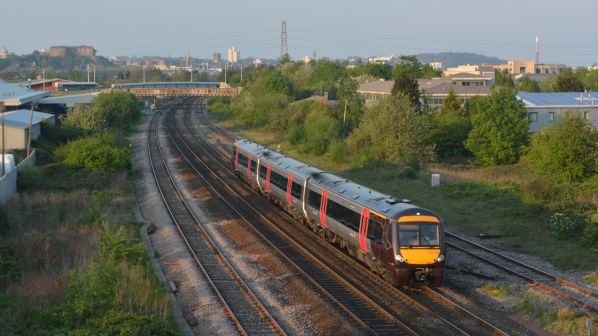The Midlands Rail Hub Strategic Outline Business Case puts forward proposals for 15 infrastructure projects across the East and West Midlands which would be implemented in 2024-2033, enabling the operation of 24 additional passenger trains per hour on the regional network and providing capacity to shift 4320 lorryloads of freight onto the railway.
The plan is intended to deliver the following outputs:
- capacity for 20 additional trains per hour into and out of Birmingham Moor Street station, relieving the neighbouring New Street station
- two new services per hour in both directions on the Birmingham - Leicester and Birmingham - Derby lines
- reinstatement of direct services between Coventry, Leicester and Nottingham for the first time since 2004, with two fast trains per hour in both directions
- two additional suburban services per hour in both directions on the Camp Hill Line between King's Norton and Birmingham Moor Street, via Hazelwell, King's Heath and Moseley
- one extra train per hour in both directions on the Birmingham - Nottingham, Birmingham - Worcester - Hereford, Birmingham - Cardiff and Birmingham - Bristol routes
- 85,000 additional daily seats on services into and out of Birmingham
- 1.6 million more people brought within one hour of the Midlands’ major towns and cities by public transport
- improved access to HS2, with more services terminating at Birmingham Moor Street, which will be located next to the new High Speed 2 station at Curzon Street, and
- 36 additional freight paths a day.
Average Birmingham - Nottingham journey times would be cut from 1h 12min to 59 minutes, while Birmingham - Hereford would be reduced from 1h 25min to 1h 5min. The Leicester - Coventry trip would be cut from 57 minutes to 38 minutes, with direct services eliminating the need to change trains at Nuneaton.

Midlands Connect says slow, indirect and infrequent services mean most journeys between key cities in the region are made by car. At present rail has just 1% of the Leicester - Coventry market based on a car/train split, 13% on Birmingham - Leicester, 18% on Birmingham - Nottingham, and 22% on Birmingham - Derby. This compares poorly with rail usage between cities in Northern England - rail has 50% of the car train split between Manchester and Sheffield and 51% between Liverpool and York.
The largest infrastructure project proposed by Midlands Rail Hub is the Bordesley Chords in Birmingham. This involves constructing two viaducts to give services from the South West and the East Midlands access to Birmingham Moor Street station, where additional platforms would be constructed. The project would be implemented in 2026-2033 at an estimated cost of £900-950m.
At Nuneaton, a flyover or dive-under across the West Coast Main Line is proposed to enable the reintroduction of direct Coventry - Leicester - Nottingham services. This would be implemented in 2026-2033 at an estimated cost of £150m.
A £150-200m programme of enhancements on the Birmingham - Leicester route would enable acceleration of services between the two cities by 2026.
Midlands Connect has requested £25m in additional funding from the British government to take Midlands Rail Hub to the Outline Business Case stage of development. This will include specific scheme development and sequencing, a full overview of benefits, project design, and a full risk assessment.

